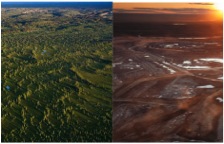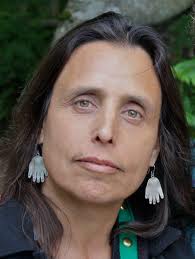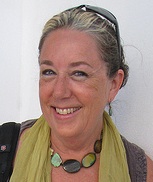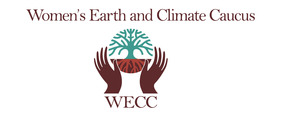|
Finally something we can read@NewAgeofActivism.com is guided by the knowledge that the Origin of All life is Lov. We believe that respecting and taking care of our home planet 'earth' keeps us safe and healthy. New ageofactivism.com is dedicated to all men and women who have been persecuted or murdered because of their sexual orientation, spiritual beliefs, race, age, gender, martial status, disability, or HIV infection. We loves god very very much.
Showing posts with label Winona LaDuke. Show all posts
Showing posts with label Winona LaDuke. Show all posts
Wednesday, February 13, 2013
Women of the Land Speak: Dispatches from the Frontlines of the Tar Sands to Renewables: New Age Of Activism top 12 and beyond. Winona LaDuke
Wednesday, February 6, 2013
New Age Of Activism Top 12 and Beyond: Winona LaDuke
Tuesday, February 5, 2013
Indigenous Women Take the Lead in Idle No More share by New Age Of Activism Top 12 and beyond: Winona LaDuke
Motivated by ancient traditions of female leadership as well as their need for improved legal rights, First Nations women are stepping to the forefront of the Idle No More movement.
Late last year, amid the the rallies, dances, blockades, and furious tweeting that accompanied the burgeoning Idle No More movement, a young native woman was kidnapped by two Caucasian men in Thunder Bay, Ontario. It was two days after Christmas. They drove her out to a remote wooded area where they raped and strangled her. According to one report, the men told her that they’d done this before, and intended to do it again. They allegedly said, “You Indians deserve to lose your treaty rights.”

Idle No More: Indigenous Uprising Sweeps North America
Idle No More has organized the largest mass mobilizations of indigenous people in recent history. What sparked it off and what’s coming next?
The story was not widely reported in the press, maybe because the woman, publicly known as “Angela Smith,” is indigenous, or maybe because violence against indigenous women happens so frequently that it’s rarely considered news.
Which is what makes the very fact of Idle No More’s female leadership so significant. Across Canada, indigenous women are continuing a tradition of leadership that existed before colonization, and in spite of a political system which, over the last 150 years, has made every attempt to prevent them from having power. While the stated goal of Idle No More is “education and the revitalization of indigenous peoples through awareness and empowerment,” according to a press release issued by the group on January 10, the rights of indigenous women appear to be an inherent part of that revitalization.
The movement—which has swept North America and inspired solidarity actions all over the world—was initiated by four women: Jessica Gordon, Sylvia McAdams, Sheelah McLean, and Nina Wilson. It gained early momentum around the hunger strike maintained by another woman, Chief of the Attawapiskat, Theresa Spence.
In many communities across the country, it was—and, in some hopeful instances, still is—the grandmothers who called the shots.
“It’s not coincidental that women are initiating this movement,” says Kiera-Dawn Kolson, 26, a Dene activist from Northwest Territories who has spoken at and helped organize Idle No More events since the movement began. She’s Greenpeace’s Arctic Campaigner, a motivational speaker, facilitator, singer/songwriter, and performer.
On a recent day of action, Kolson watched excitedly from her hometown of Yellowknife as image after image of rallies streamed in from all over Canada. She noticed a pattern: From Ontario to Nunavut, from Saskatchewan to the Yukon, the images showed young women in the roles of organizers and spokespeople.
She’s energized, but not surprised. “So many of our communities were and are still matriarchal societies,” she says. In many communities across the country, it was—and, in some hopeful instances, still is—the grandmothers who called the shots. And while each society is different, they all shared the same fate under Canada’s Indian Act, an all-encompassing piece of legislation that had devastating ramifications for women; created by white men with Victorian values, the Act explicitly excluded women from most forms of power and even made their identity as “Indians” contingent on their husbands.
Like what you’re reading? YES! is nonprofit and relies on reader support.
Click here to chip in $5 or more to help us keep the inspiration coming.
Click here to chip in $5 or more to help us keep the inspiration coming.
Nearly a hundred and forty years later, in Canada and all over the world, young indigenous women (as well as transgendered youth) are some of the most heavily brutalized segments of the population. In some provinces, native women are seven times more likely to be murdered than their non-indigenous counterparts. According to the Native Women’s Association of Canada (NWAC), 582 women were murdered or disappeared between 2000 and 2010—and many more cases are unreported. No one knows how much the number has risen since then; the project apparently stalled after the Harper government cut NWAC’s research funding.
Idle No More's female leadership is a testament to the ability of women to reclaim power in the face of oppression.
Kolson has been active in NWAC’s Sisters in Spirit project, which compiles data on missing and murdered women and works to spread awareness about the issue. Building on NWAC’s research, Human Rights Watch has recently taken up the cause, and is mounting an investigation of its own. Meanwhile, Kolson lives with the knowledge that her identity puts her in danger. In college, she was careful to choose only classes that took place during the day so she wouldn’t have to walk alone at night.
“Angela Smith” was left alone in the frozen woods after her attack, and the two men drove away. They never believed she’d live. They were wrong: not only did she survive, she walked the four hours back to her town, and her story has come to symbolize strength in the face of unimaginable violence. We hope she is healing.
As Idle No More continues to gain traction, its women leaders work to make visible the systems—of political power, racism, and economic injustice—that oppress all native people. For them, these are not abstract issues; each of these pieces contributes to a society where their bodies, and those of their sisters and daughters, are targets.
The name “Idle No More” is new, but the struggle is as old as Canada. It stands firmly in the tradition of human rights movements led by those most oppressed: the Civil Rights movement in the U.S., the Independence movement in India, and the struggle to end apartheid in South Africa. Its female leadership is a testament to the ability of women to reclaim power in the face of oppression, and to the resilience, over centuries, of a people for whom assimilation is not an option.
SOURCE
SOURCE
Wednesday, January 30, 2013
New Age Of Activism Top 12 and Beyond: Winona LaDuke Clayton - Thomas-Muller and Heather Milton Lightening at #J28
Powerful speeches by Clayton Thomas-Muller @CreeClayton and Heather Milton Lightening @inktomilady at yesterday's Idle No More Global Day of Action rally on Parliament Hill, Ottawa
Subscribe to:
Posts (Atom)













